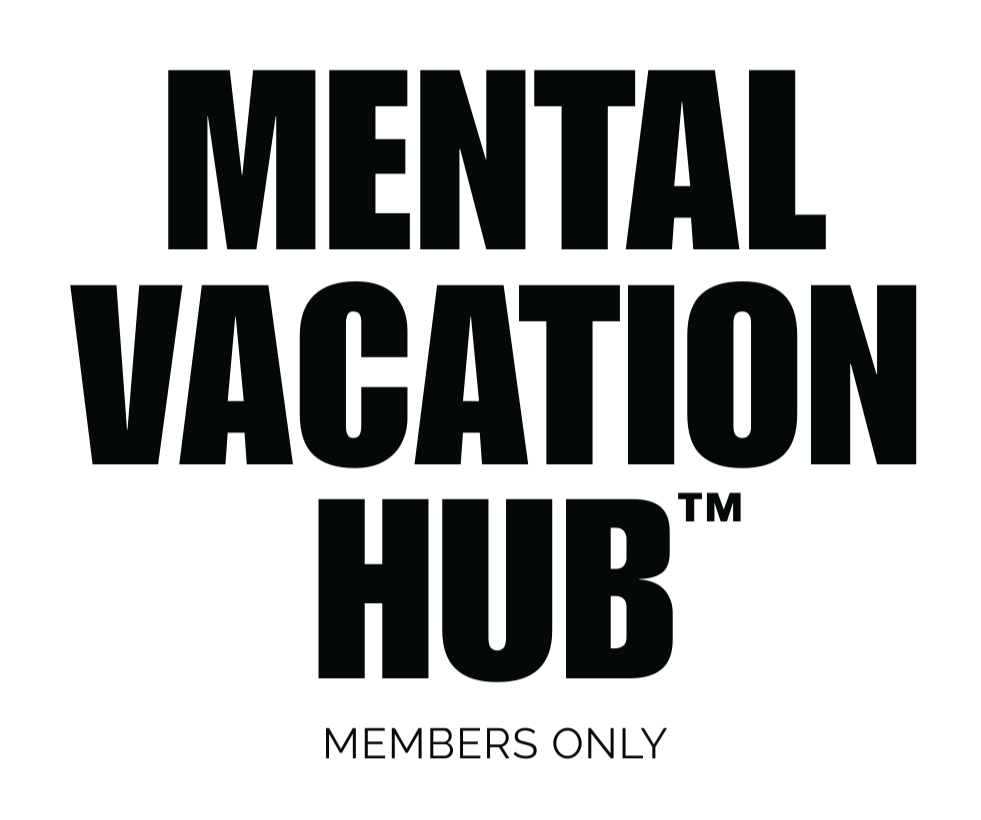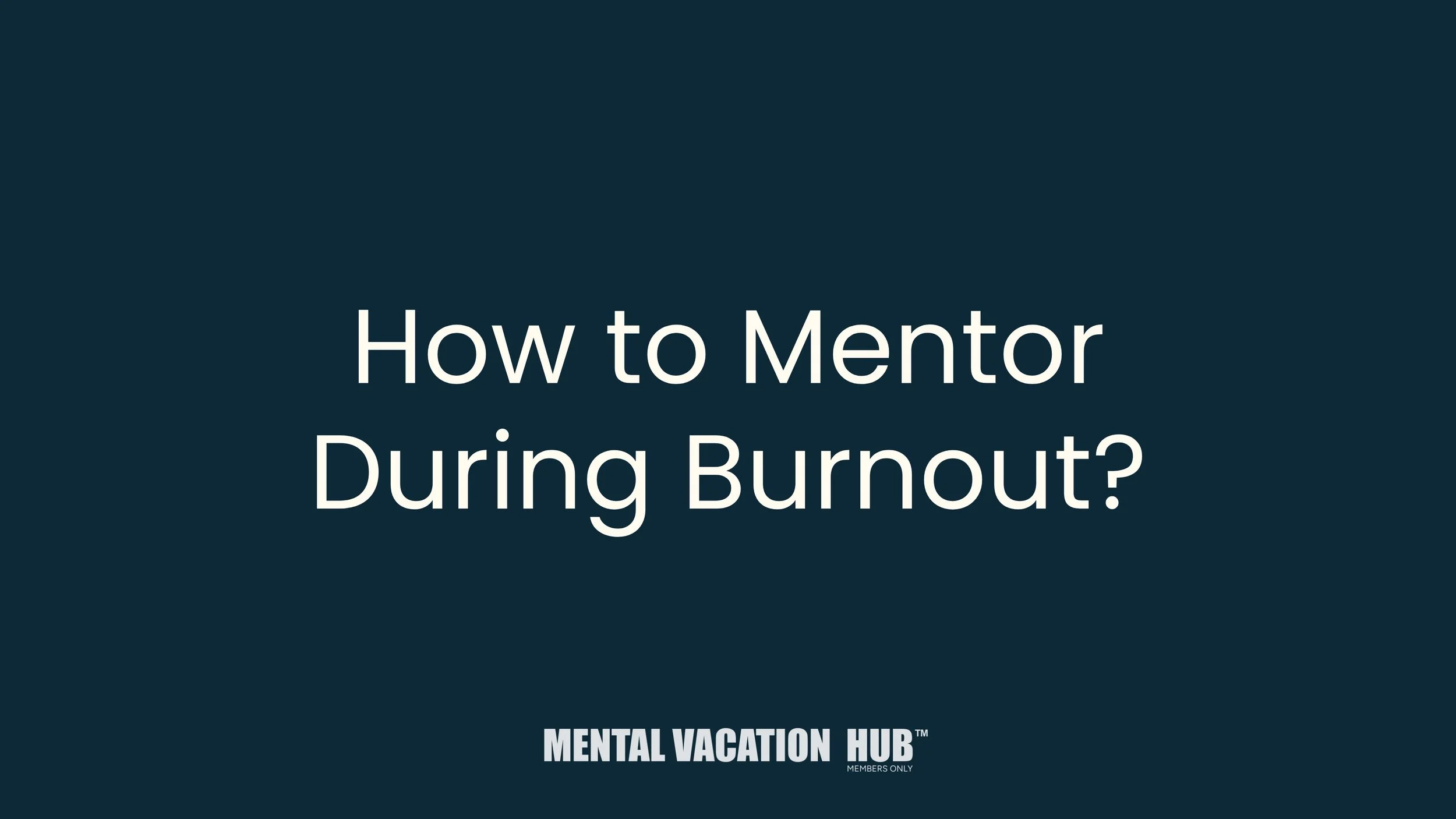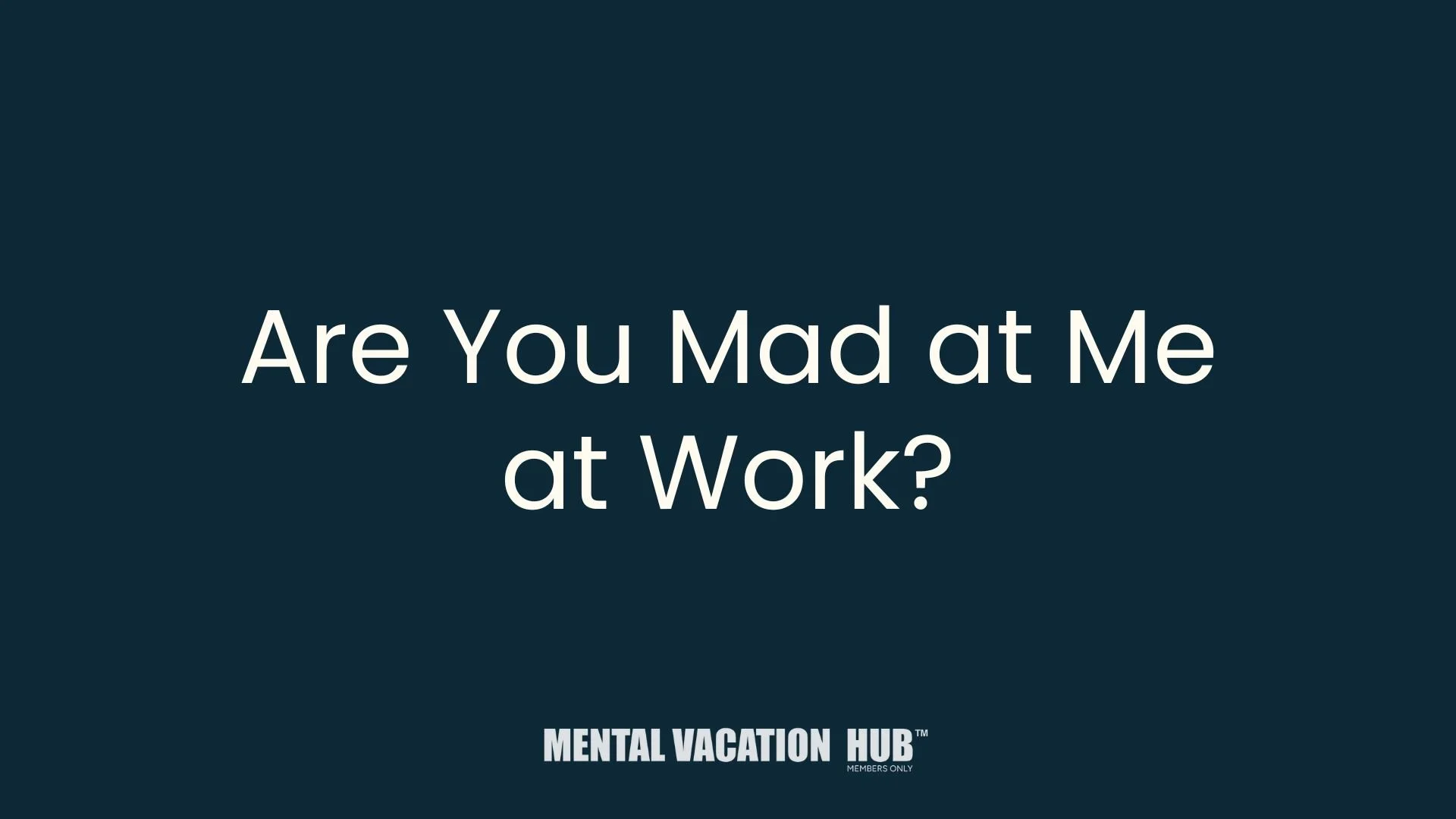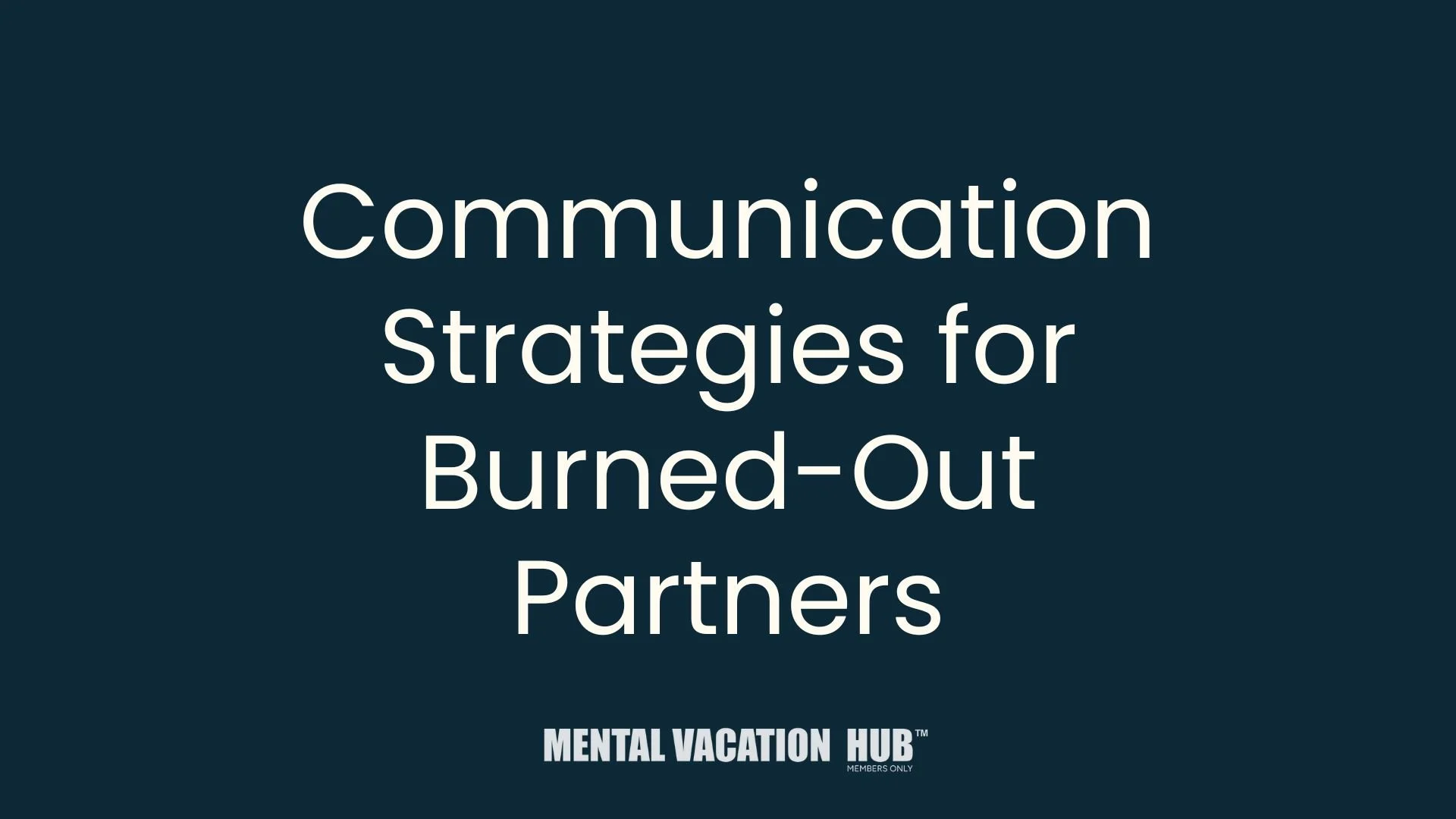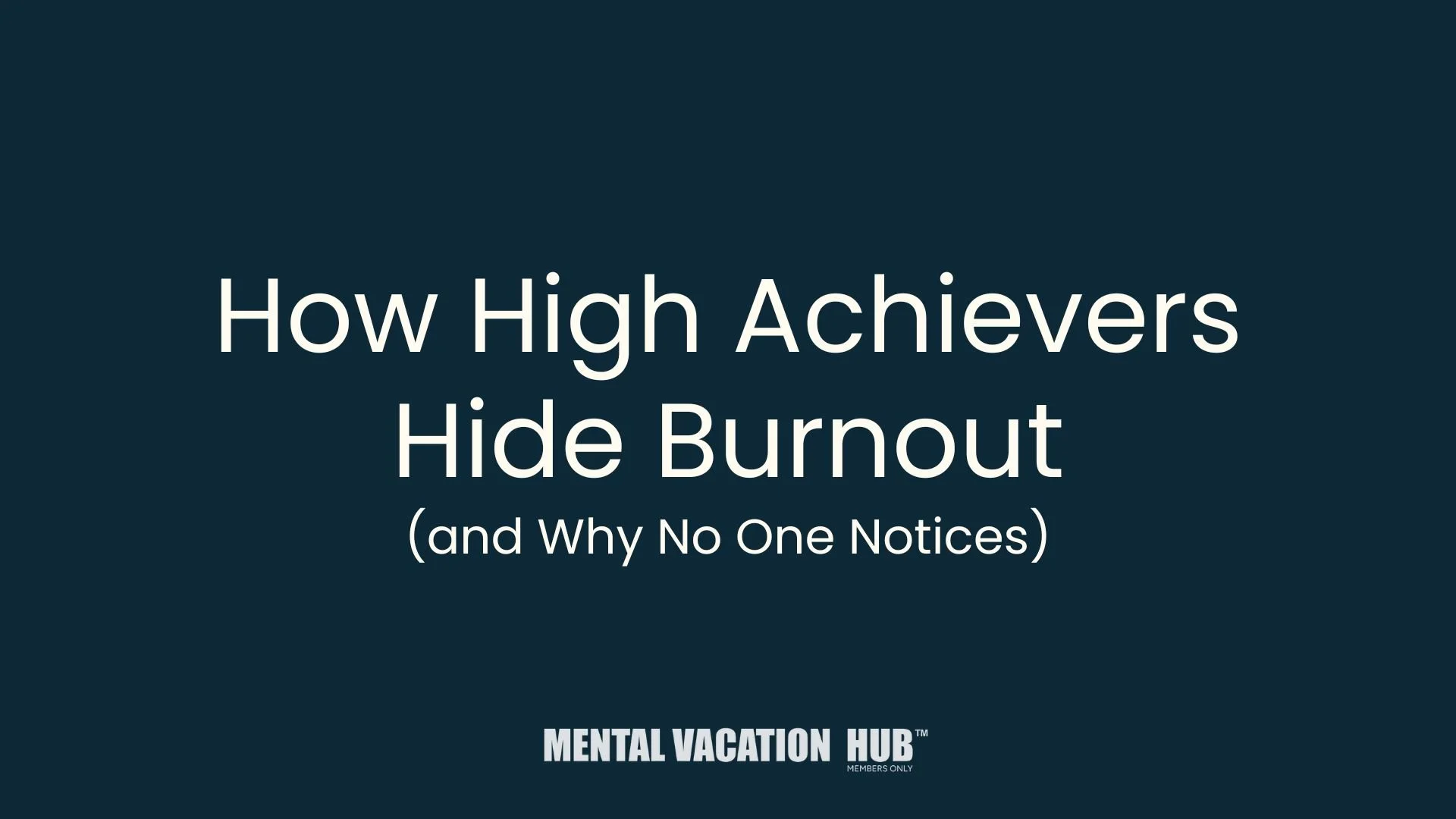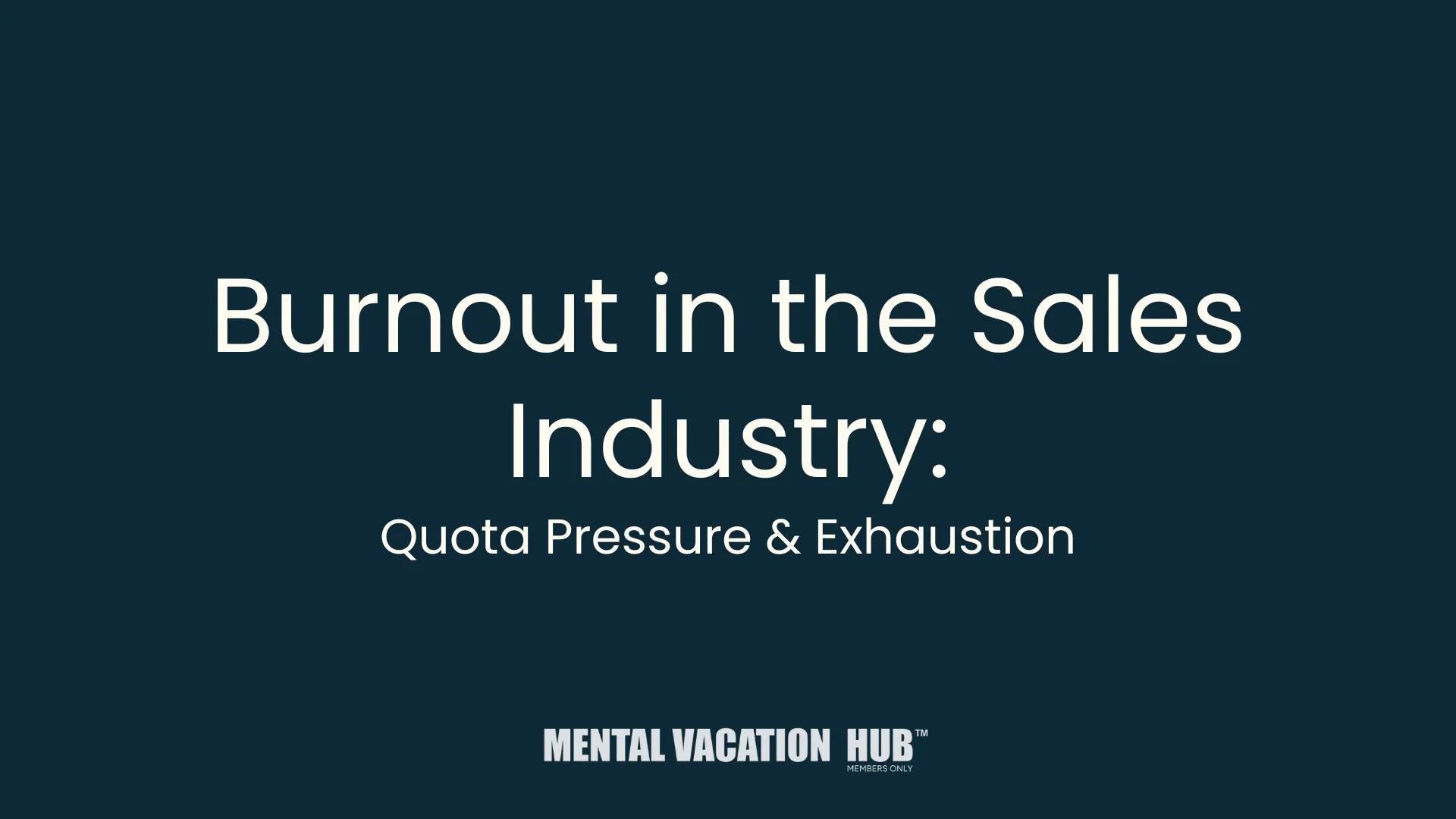How to Mentor During Burnout?
People still need you even when you're empty.
Junior colleagues ask for advice. Team members need guidance. Your mentees expect your time and wisdom. The requests keep coming.
Mentoring while burned out creates an impossible bind.
These relationships matter to you. People are counting on you. Walking away feels like abandoning them. But every conversation drains you further. Every request feels like one more thing you cannot handle. The guilt is crushing, but so is the exhaustion.
I tried to maintain all my mentoring relationships during my burnout.
I thought I could push through, that these people deserved my support regardless of how I felt. What actually happened was that I gave terrible advice, showed up distracted and irritable, and eventually ghosted people I cared about because I couldn't face disappointing them again. The relationships I was trying to protect got damaged anyway, just in messier ways.
There's a better approach. Mentoring during burnout recovery requires honesty, boundaries, and a completely different model than what worked before.
This post explains how to provide value while protecting the energy you need to recover.
Why Mentoring Becomes Impossible During Burnout
Effective mentoring requires capacities that burnout destroys.
Listening deeply, thinking strategically, holding space for someone else's problems, offering thoughtful guidance. All of this demands emotional and cognitive resources that are already depleted.
When someone brings you a problem, your burned-out brain struggles to focus on it.
Their words wash over you while your mind fixates on your own exhaustion or the seventeen things you need to do after this conversation. You try to engage, but you're not really there, and they can feel it. The conversation becomes performative rather than meaningful, which helps no one.
Mentoring also requires emotional regulation and patience. Burned-out executives often become irritable and reactive. A mentee's repeated mistake that you'd normally address with curiosity triggers frustration. Their uncertainty that you'd normally support with encouragement feels exhausting.
You find yourself giving curt advice just to end the conversation, or worse, avoiding mentees entirely because you can't trust your own reactions.
There's also the empathy problem. Burnout narrows your focus to survival. Other people's career concerns or development needs feel trivial compared to your own crisis. This isn't callousness. It's a nervous system stuck in threat mode that cannot extend beyond immediate self-preservation.
Mentoring requires the ability to care about someone else's growth, and burnout temporarily removes that capacity.
The Guilt of Stepping Back
The hardest part of reducing mentoring during burnout is the guilt.
These people invested in relationships with you, and they're counting on your guidance. Some of them are at critical career junctures where your support could make a real difference.
Stepping back feels selfish and irresponsible.
Here's what I have learned: bad mentoring is worse than no mentoring. When you show up distracted, irritable, or checked out, you damage the relationship and provide poor guidance. Your mentee leaves confused or hurt. They might make decisions based on advice you gave while cognitively impaired.
They definitely notice that something is off, which creates anxiety and erodes trust.
Honest boundaries protect both people. Saying "I'm dealing with some health issues and need to step back from mentoring for a few months" is far better than ghosting, showing up inconsistently, or providing half-hearted support. Most people respond with understanding and appreciation for your honesty.
The ones who don't probably weren't great mentoring relationships anyway.
Sustainable Mentoring Models During Recovery
If you want to maintain some mentoring during recovery, you need a completely different model.
Traditional mentoring assumes you have abundant time, energy, and emotional capacity. Recovery requires protecting all three ruthlessly.
Time-bounded, structured sessions work better than open-ended availability.
Instead of "reach out anytime," schedule specific 30-minute sessions monthly or quarterly. This creates predictability for both of you and prevents mentoring from expanding to fill all available time. Structured sessions also force focus. You prepare, show up fully for that window, then close the door until next time.
Asynchronous mentoring protects your energy while still providing value.
Instead of real-time conversations, ask mentees to send written questions or updates. Respond when you have energy, in writing or short video messages. This approach lets you engage thoughtfully without the energy drain of real-time interaction.
Some mentees actually prefer it because they get more considered responses.
Group mentoring multiplies your impact while reducing individual energy expenditure.
Instead of five separate one-on-one relationships, facilitate a monthly group session where mentees support each other and you provide guidance to the collective. This model builds community among your mentees while dramatically reducing your time and energy investment.
Resource-based mentoring shifts from personal guidance to curated resources.
When a mentee asks about a topic, send them an article, book, or podcast rather than explaining it yourself. This still provides value while protecting your capacity. Over time, you build a library of resources you can share repeatedly.
The key is being explicit about the model you're using. Don't let mentees assume they have unlimited access when you're operating within strict boundaries.
Clear expectations prevent disappointment and resentment on both sides.
What to Say When You Need to Step Back
The conversation where you tell mentees you need to reduce or pause mentoring is hard, but it's also an opportunity to model healthy boundaries and self-awareness.
Most mentees will respect honesty far more than vague excuses or slow ghosting.
Be direct about what's happening without oversharing. "I'm recovering from burnout and need to protect my capacity carefully. I can't provide the quality of mentoring you deserve right now," communicates the situation clearly. You don't need to detail your burnout symptoms or justify your decision.
Health issues are a sufficient explanation.
Offer alternatives when possible. Can you introduce them to another mentor? Can you shift to quarterly rather than monthly meetings? Can you stay available for specific high-stakes situations but not routine check-ins? Offering alternatives shows you still care about their development even though you need to change the relationship structure.
Set a timeline if you can. "I need to step back for the next three to six months while I focus on recovery," gives people clarity and hope that the relationship isn't ending permanently. If you genuinely don't know when you'll be ready to re-engage, say that too. Uncertainty is better than false promises.
Express appreciation for the relationship. Mentoring relationships are meaningful, and acknowledging that matters. "I've really valued our conversations and your growth.
This decision is about my capacity, not about you or our relationship." helps people understand that your withdrawal is circumstantial, not personal.
How to Mentor While Protecting Your Recovery
If you choose to maintain some mentoring during recovery, protect your energy fiercely.
Every mentoring interaction should leave you neutral or slightly energized, never depleted. If mentoring consistently drains you, you're doing too much.
Prepare boundaries before each session
Decide in advance how long you'll meet, what topics you will and won't discuss, and what you need to feel okay during the conversation.
If you need to meet in the morning when your energy is highest, schedule it then. If you need to meet virtually rather than in person, do that.
Your recovery takes precedence over convenience.
Focus on questions rather than answers
Asking thoughtful questions requires less energy than providing comprehensive advice.
Questions also develop your mentee's thinking rather than creating dependency. "What options have you considered?" and "What would success look like?" are often more valuable than detailed guidance anyway.
Redirect emotional labor
If a mentee uses sessions primarily to vent or process emotions, redirect them to appropriate resources.
"It sounds like you're dealing with a lot emotionally. Have you considered talking to a therapist about this?" Mentoring can include some emotional support, but it shouldn't become therapy.
Protect this boundary to protect your energy.
End sessions when you need to
If you hit your energy limit mid-conversation, it's okay to say, "I need to wrap up now. Can we continue this next time?"
Pushing beyond your capacity helps no one.
Your mentee gets poor guidance, and you deplete yourself further.
Track how mentoring affects your energy
After each session, note whether you feel energized, neutral, or drained. If a particular mentoring relationship consistently drains you, reassess whether to continue it.
Not all mentoring relationships are worth maintaining during recovery.
When Mentoring Actually Helps Your Recovery
Interestingly, some mentoring can support rather than hinder recovery.
Not all giving depletes. Some relationships and interactions actually restore energy, even during burnout.
Mentoring relationships where the mentee is genuinely growing and implementing your guidance can be energizing.
When you watch someone succeed because of your support provides you with meaning and purpose, which are often casualties of burnout. These relationships remind you why your work matters, which can be deeply restorative.
Mentoring also forces you to articulate wisdom and perspective that you struggle to apply to your own situation. I often found myself giving advice to mentees that I desperately needed to follow myself. "You can't sustain this pace. You need to set boundaries." Saying it out loud to someone else sometimes helped me hear it for myself.
Some mentees bring fresh energy and optimism that's contagious. Early-career professionals who are excited about their work can remind you why you got into this field in the first place. Their enthusiasm can cut through your cynicism temporarily, which is valuable during recovery.
The key is being selective. Maintain only the mentoring relationships that energize or restore you. Release the ones that deplete you, at least temporarily. This isn't selfish. It's strategic.
Protect your recovery to enable you to mentor more people more effectively in the long run.
FAQ
Should I tell my mentees I'm burned out?
This depends on the relationship and your comfort level.
With close mentees where trust is strong, honesty often strengthens the relationship and models vulnerability. With newer or more formal mentoring relationships, you can be less specific: "I'm managing some health issues and need to protect my capacity." Gauge what feels right for each relationship.
There's no requirement to disclose burnout specifically.
What if my mentee is going through a crisis and really needs me?
Assess whether you can genuinely help or whether you'd make things worse by showing up depleted.
If you can provide meaningful support for a specific crisis without derailing your recovery, do it. If you can't, help them find alternative support: another mentor, a therapist, or professional resources.
Sometimes the most helpful thing is honest acknowledgment that you're not the right support person right now.
How do I restart mentoring relationships after recovery?
Reach out directly and acknowledge the gap.
"I stepped back to focus on my health, and I'm ready to re-engage now. I'd love to catch up and hear how things have been going." Most people will appreciate your honesty and be happy to reconnect. Some relationships may have naturally ended, and that's okay, too.
Focus on the ones where mutual interest remains.
Can I mentor while still recovering, or should I wait until I'm fully recovered?
You can mentor during recovery if you're strategic about it.
Use sustainable models, maintain strict boundaries, and monitor your energy carefully. Full recovery isn't required, but you need enough capacity to show up meaningfully. If mentoring consistently depletes you or interferes with recovery activities, wait.
If you can engage in limited, bounded ways without harm, that's fine.
What if I feel like I'm letting people down by stepping back?
You probably are disappointing some people, and that's uncomfortable, but necessary.
Your responsibility is to protect your health so you can contribute sustainably long-term. Burning yourself out to avoid disappointing people in the short term helps no one. Most mentees will understand.
The ones who don't are revealing that the relationship was more about what you could provide than genuine mutual investment.
Conclusion
Mentoring while burned out requires honesty, boundaries, and completely different models than traditional mentoring.
Effective mentoring demands capacities that burnout destroys: deep listening, strategic thinking, emotional regulation, and empathy. Trying to maintain normal mentoring during recovery depletes you further and provides poor guidance.
The guilt of stepping back is real, but bad mentoring is worse than no mentoring. Honest boundaries protect both people and preserve relationships for the long term. Sustainable models during recovery include time-bounded sessions, asynchronous communication, group mentoring, and resource-based guidance.
Tell mentees directly that you need to step back, offer alternatives when possible, and set timelines if you can.
If you maintain some mentoring, protect your energy fiercely through boundaries, questions rather than answers, and selective engagement.
Some mentoring can actually support recovery when relationships are energizing and meaningful.
Yale University: Combating Burnout with Mindfulness.
Learn More About Executive Burnout:
Ready to recover? Get Your Burnout SOS Handbook:

Burnout SOS Handbook: Practical steps to understand, survive, and recover from your burnout. Easy to follow - just right for a brain-fogged head. Start your healing today!
Take the Burnout Test
Our 5-minute Burnout Test cuts through the confusion and gives you a personalized snapshot of where you stand and what comes next.
Start the test →